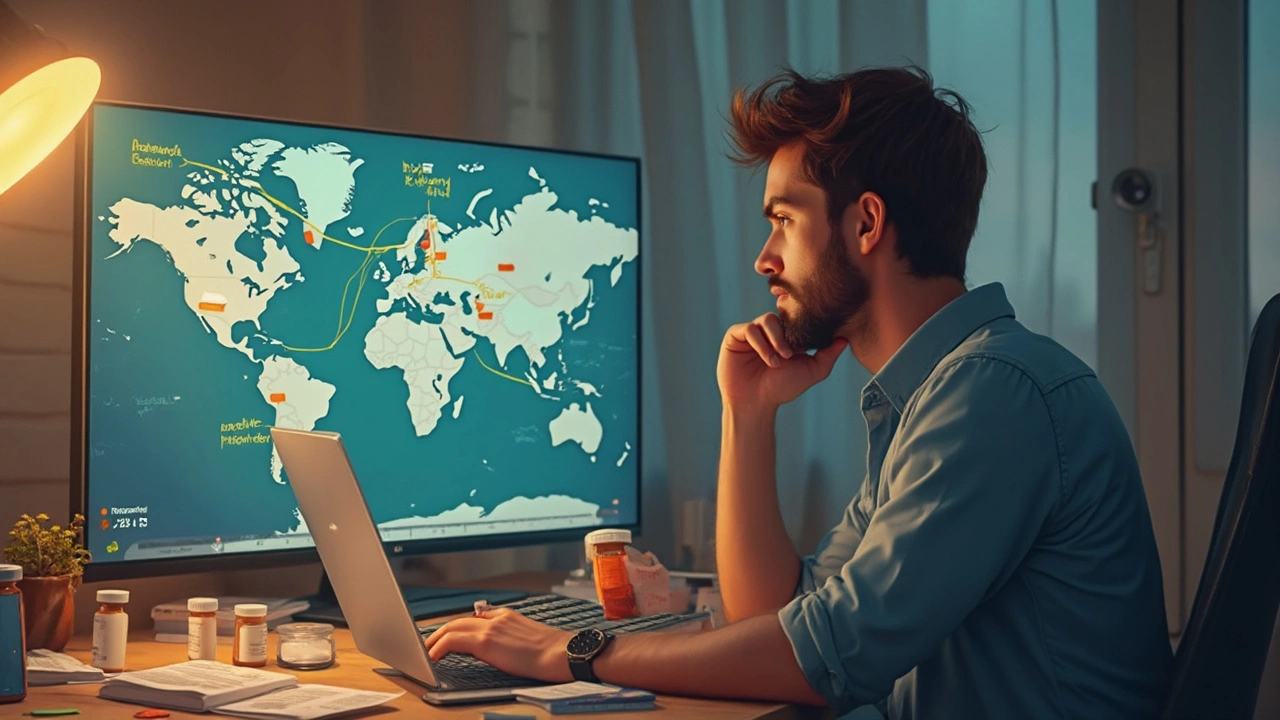COVID Logistics: Keeping Medicine and Vaccines Moving
When a virus spreads fast, the biggest worry isn’t just the illness – it’s how the needed medicines, tests, and vaccines get to the people who need them. That’s what COVID logistics is all about. It’s the behind‑the‑scenes work that moves boxes from factories to pharmacies, hospitals, and even your doorstep.
Good logistics mean you don’t have to wait weeks for a prescription or a vaccine dose. Bad logistics mean shortages, price hikes, and a lot of stress for patients and doctors alike. Below we’ll break down why logistics matter in a pandemic and give you simple steps to protect your own supply chain.
Why Logistics Matter in a Pandemic
First, think of the supply chain as a highway. If one lane closes because of a lockdown, traffic gets backed up. The same thing happens with drugs – factories might slow down, customs can be stricter, and shipping routes may shift. Each interruption can delay the arrival of critical items like insulin, antibiotics, or COVID‑19 vaccines.
Second, demand spikes. When a new variant appears, everyone rushes to get tests and boosters. Logistics teams have to reroute trucks, add extra flights, and sometimes use temperature‑controlled containers to keep vaccines from spoiling. Those extra steps cost money, which can raise the price you pay at the pharmacy.
Lastly, safety rules add layers. Workers need protective gear, and warehouses must follow strict cleaning protocols. All of that slows down handling, but it also protects the people moving the products.
Tips to Ensure Your Meds Arrive on Time
1. Use reputable online pharmacies. Look for sites that show they work with licensed pharmacies and have clear contact info. This reduces the chance of counterfeit or delayed shipments.
2. Set up automatic refills. Many pharmacies let you schedule refills a month in advance. That way you avoid last‑minute orders when shipping is backed up.
3. Ask about local pickup. If your area has a pharmacy that offers drive‑through or curbside service, you can skip the mail altogether.
4. Keep a backup supply. For chronic meds, having an extra 30‑day supply can save you if a shipment is delayed.
5. Track your order. Most reputable sellers provide a tracking number. If you see a delay, call the pharmacy right away – they can sometimes reroute the package.
6. Stay informed about supply alerts. Health agencies often post updates when a particular drug or vaccine faces a shortage. Knowing this early helps you plan ahead.
COVID logistics isn’t just a buzzword – it’s the lifeline that keeps health care running when the world is under pressure. By choosing trusted sellers, planning refills, and staying aware of supply news, you can make sure your meds arrive when you need them, even in the middle of a pandemic.

Solving COVID-Era Shipping Delays for Cross-Border Medication Refills
Feeling anxious about getting prescriptions from another country on time? COVID-era shipping delays have made international medication delivery trickier than ever, with logistics bottlenecks, policy changes, and unpredictable wait times. This long-form guide breaks down the current landscape, details smart ways to avoid running out, and delivers essential tips for staying ahead on cross-border prescription refills. From proven online pharmacy practices to recent delivery stats, here's exactly what you need to know. Get the confidence to manage your meds—no matter what supply chain messes the world throws your way.
